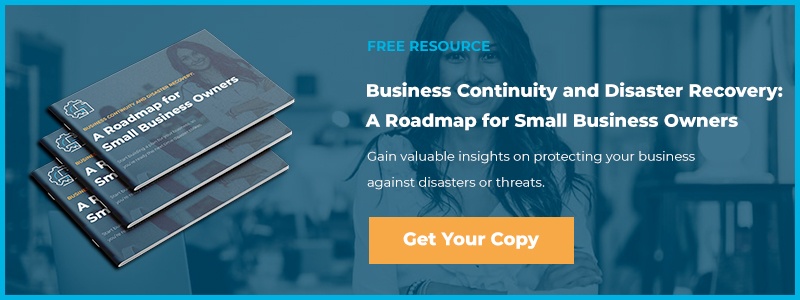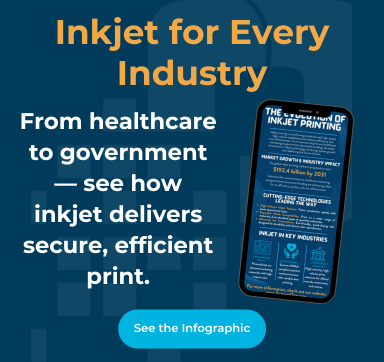You have decided to move to the cloud. No, not up in the atmosphere, but rather you have decided to go to a hosted IT solution. You're done managing your local hardware and you have already made the leap to cloud-based software, and figured, “I am already using all of their processing apps, why don’t we just leverage the full cloud storage system?" The ease of use, access from anywhere with internet, ability to collaborate, consolidation of tools and resources… the list of benefits goes on and on. Oh yeah, and I don’t have to keep my backups, right?
What About My Backup Solution?
The last point is a point of contention. Since most of the traditional backup solutions require working with local data, and many of the solutions are going off-site to the cloud, the argument becomes, “Since I am not working with local data and I am hosting in the cloud, why would I need backup if none of the uses for the traditional backup would apply to me?” The person making this argument wouldn’t be wrong either.
The main thing to keep in mind is that as the ability to access and use technology has evolved. We've needed to move away from traditional backups, and instead, include the new tools and functionality that have become more common. Although you may not have to worry about data loss with fires, floods or hardware failures, you do have to consider the extent to which the nature of disasters around you have changed.
Changing Data Disasters
As we rely more on IT systems, downtime has become more critical, and in turn, downtime occurs more often. Contrary to popular belief, disasters are not only caused by fires, floods, power outages or hurricanes. Instead, they can also be caused by the human wrecking balls that we are. This is what we like to call, human error. Whether it's by deleting a file, clicking on a fraudulent link, or even that malicious ex-employee with an active account, humans ultimately cause the most harm to our systems. There lies the issue.
The disasters that occur most often are not being protected against by using cloud data backup services. If you go to the cloud, you are only as protected as the safeguards your provider is protecting against. Make sure you go through all the agreements they have with you; you might be surprised to find out that you are less protected than you think.
Questions to Ask About Data Protection
- Are you protecting my data in the event that it gets deleted?
- Is your service covering all our compliance needs?
- Does this service protect against ransomware?
- Is there flexibility if migration is needed down the road?
What you need to do here is to provide yourself with supplemental coverage which can serve to cover the gaps. The best way to do this is to make sure that you are providing yourself with a complete, secure, independent backup copy of your data that is being recorded throughout the day. This means that your protection is not fully covered by the application provider giving you your services. Instead, it's being provided by a company that specializes in handling backup data. If you are going to specialize with your hosting, why stop there, do it with your backups as well.
Selecting The Right Data Protection Plan
Overall, using a cloud service is not a bad thing. However, there are still factors you need to keep in mind. Make sure you know the solution you are putting in place both inside and out, and are aware of the holes it will create. Then bring in some supplementary coverage to fill those holes and complete your solution. Make sure that the provider you are using is a leader in their industry. This doesn’t mean the biggest name, but you need to assure you are protected against both current threats and they're evolving with the threat landscape and addressing threats of the future. You never know where those threats are going to come from, so don’t take the risk. If you need help, don’t do it alone, seek out some local professionals.
Our experts are prepared to guide you through the process of finding the right solution to protect your business. If you would like to learn more about data backup solutions available today, contact one of our local SumnerOne offices.
About the Author - Leif McKinley
 Leif McKinley is a Channel Sales Executive for Datto, a Business Continuity vendor that focuses on business up time. He has been with Datto for 6 years as they have grown from a single purpose BDR device to a full service Total Network Protection provider covering all data protection and networking needs. Prior to working at Datto, Leif sold Life, Disability, and Long-Term Care insurance where he was able to gain risk management experience. He saw the value that a risk management specialist can add to technology and continues to focus on the intersection between these two fields.
Leif McKinley is a Channel Sales Executive for Datto, a Business Continuity vendor that focuses on business up time. He has been with Datto for 6 years as they have grown from a single purpose BDR device to a full service Total Network Protection provider covering all data protection and networking needs. Prior to working at Datto, Leif sold Life, Disability, and Long-Term Care insurance where he was able to gain risk management experience. He saw the value that a risk management specialist can add to technology and continues to focus on the intersection between these two fields.
Originally published August 1, 2018, updated April 1, 2019
 FREE EBOOK DOWNLOAD
FREE EBOOK DOWNLOAD

















